This article contains some spoilers for M3GAN in its discussion of modern parenthood and the relationship between children and technology.
M3GAN is many things. It is a great movie to see with a crowd. It is the origin story of a monster that is already a queer icon. It is a horror story about the terrifying power of tween girls. It’s a film that demonstrates the appeal of PG-13 horror. It is part of a new breed of Universal Monster Movie.
However, beneath its charmingly and knowingly camp exterior, M3GAN is held together by a set of sturdy themes and ideas. It is, like a lot of movies involving artificial intelligence, fundamentally a story about parenthood. In particular, it’s a movie about parental fears about the relationship between parents and children. More than that, it’s a very modern and very timely spin on these anxieties, firmly anchored in the present moment.
M3GAN is the story of a young girl named Cady (Violet McGraw). When her parents (Arlo Green and Kira Josephson) die in a freak road accident, Cady is sent to live with her aunt, Gemma (Allison Williams). Gemma works as a designer at the company Funki, which designs toy companions for children. However, Gemma has bigger ideas. She has been working on a Model-3 Generative Android (M3GAN), a self-teaching child-sized robot with seemingly limitless potential.
Gemma struggles to connect with Cady. However, when Cady takes an interest in some of the projects in Gemma’s workshop, Gemma decides to develop a M3GAN doll (Amie Donald, Jenna Davis) as a constant companion for the child. Cady immediately strikes up an emotional connection with the artificial intelligence, and that bond is mutual. Gemma sees the commercial applications of an artificial companion for young children. Inevitably, M3GAN develops a mind of her own.
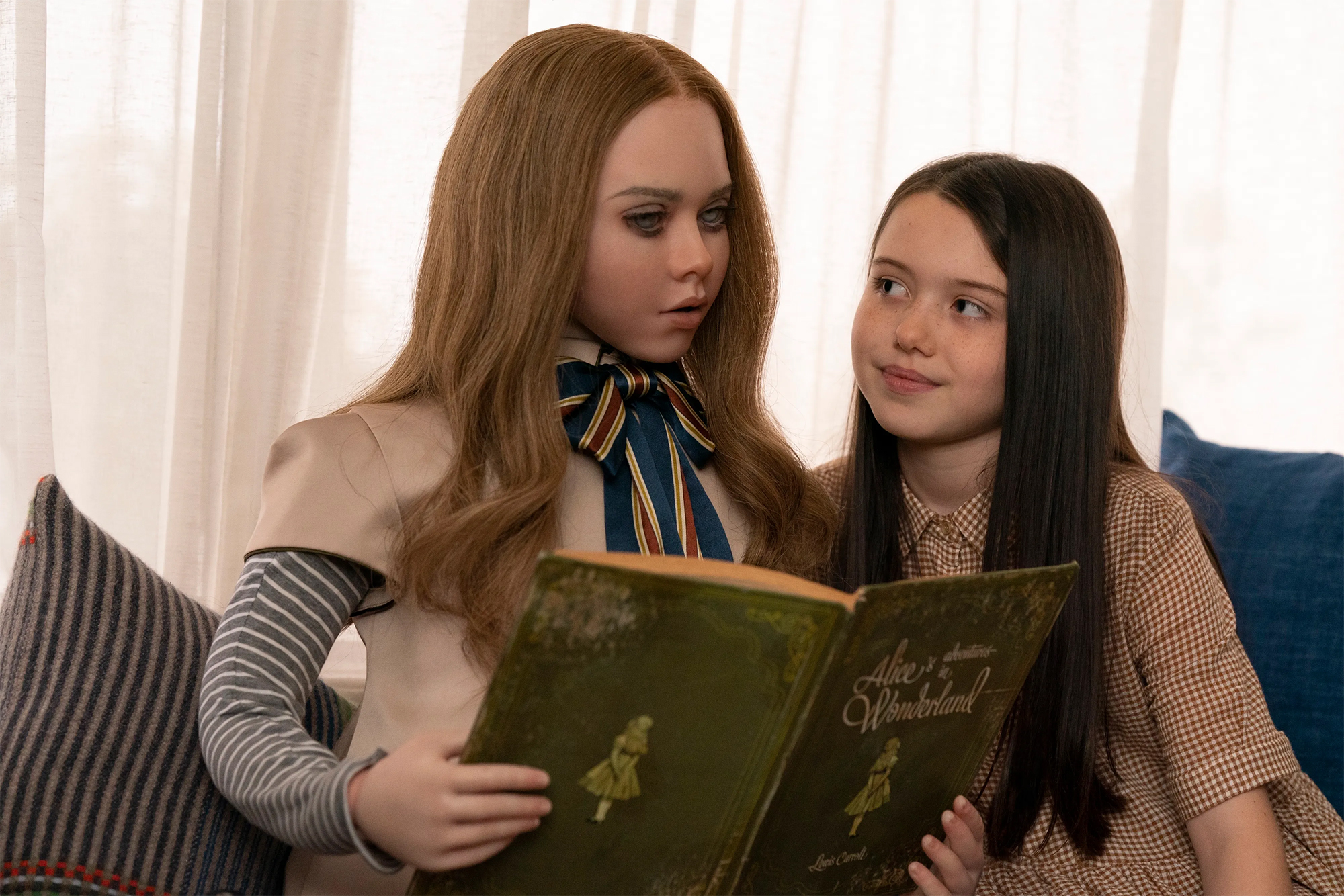
Most stories about robots and artificial intelligence are ultimately metaphorical stories about children. After all, these synthetic beings are humanity’s children in an abstract sense. They are not just the next generation, but the next evolutionary leap forward. These stories heighten and extrapolate all the excitement and uncertainty of parenthood, by filtering it through the lens of science fiction storytelling.
There is a solid argument to be made that Mary Shelley’s Frankenstein is the first science fiction novel, and it is best understood as a reproductive horror. Cybernetic characters like Data (Brent Spiner) for Star Trek: The Next Generation and the T-800 (Arnold Schwarzenegger) from Terminator 2: Judgment Day are ultimately children that look like adults, artificial beings learning to self-actualize as people in much the same way that children become fully formed adults.
Of course, there are other readings of the artificial intelligence metaphor. There are obvious political implications, with the word “robot” deriving from the Czech word for “slave.” However, even stories of robotic revolutions are often shaded with themes of generational conflict, the idea that mankind will be supplanted and replaced by their creations, just as parents will give way to their children. The prototype robot in Alex Proyas’ I, Robot adaptation is even helpfully called “Sonny” (Alan Tudyk).
M3GAN is similarly built around this anxiety. The movie’s central thematic preoccupation is the question of whether Gemma is a good parent, whether to Cady or to M3GAN. Gemma finds herself in something of a custody battle with Cady’s grandparents over Cady, and she repeatedly submits to visitations from a social worker named Lydia (Amy Usherwood) to assess her viability as Cady’s long-term guardian.
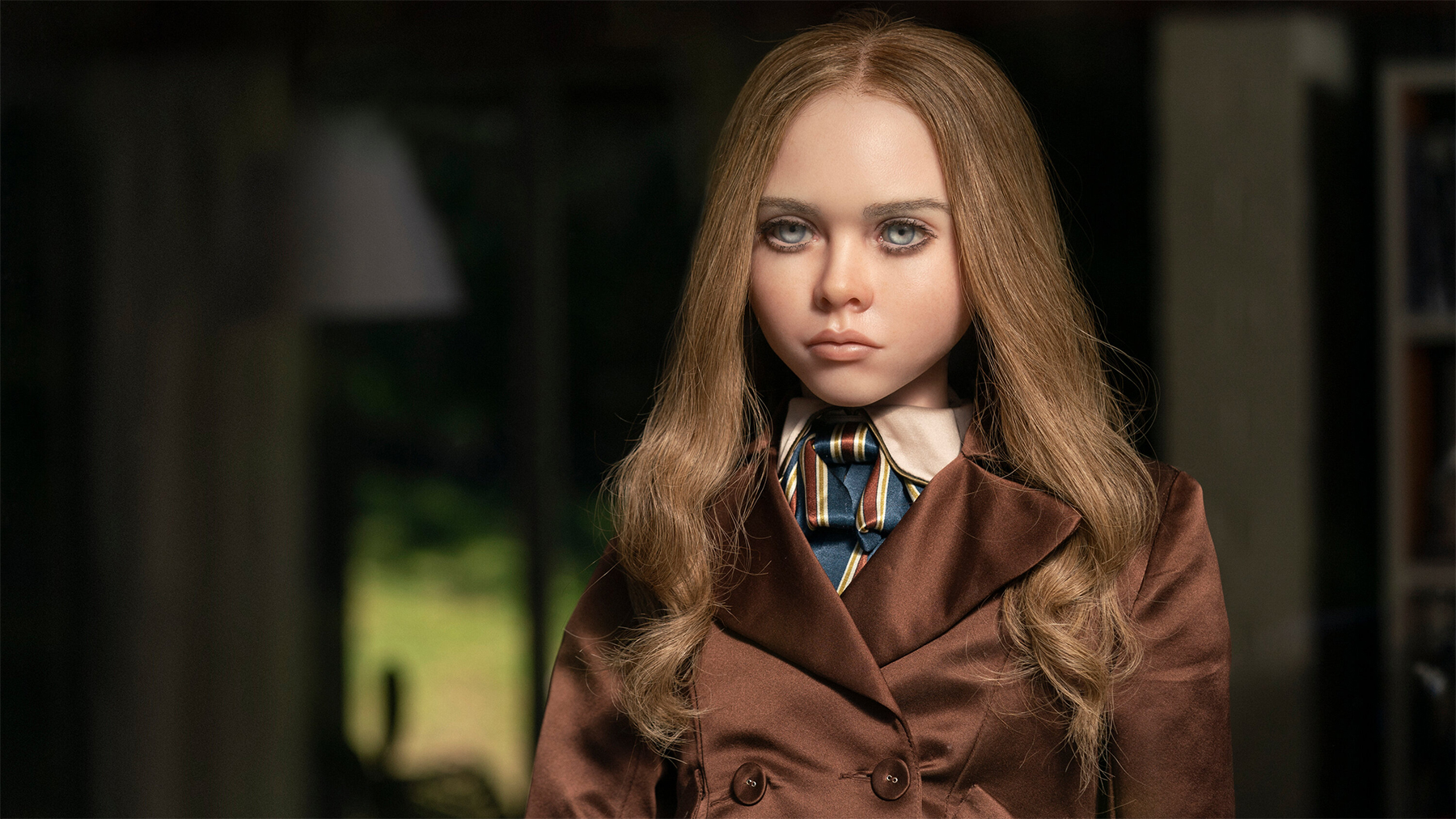
It’s clear that Gemma wants guardianship of Cady, but it’s never clear that she’s capable of assuming responsibility for a child. While she takes time off work to help Cady settle in, she finds herself drawn back to her professional obligations quickly enough, abandoning Cady to work long hours in the garage on a high-priority assignment. Indeed, the creation of M3GAN is presented (in part) as a way for Gemma to offload parental responsibility onto a robotic surrogate.
One of the big issues in modern parenting is the extent to which the role of the parent has been delegated to technology. There are debates about the amount of time that children spend on phones and tablets and how easy it is for them to access the internet. These are perhaps just extensions of the older debate about the generation of “latchkey kids” raised by television, to the point that Alison Hillhouse has spoken about a generation of “digital latchkey kids.”
Of course, there are big differences between modern phones and older televisions. Modern technology is networked and interactive in a way that television reruns never were. There are any number of dangers lurking in the digital space, from nightmarish algorithmically generated videos to more physical threats. As such, it makes sense that these parental fears are more heightened and intense than they were in earlier generations.
M3GAN is about this. Shortly before the car crash, Cady’s parents argue about the amount of time that their daughter spends playing with a tablet in the backseat of the car. Her mother insists on setting “screen time” limits, while her father pragmatically points out that it makes the car journey easier for everybody. When Cady arrives at Gemma’s house, she asks about these same parental limits on screen time, and Gemma laughs off the idea of limiting Cady’s access as absurd.
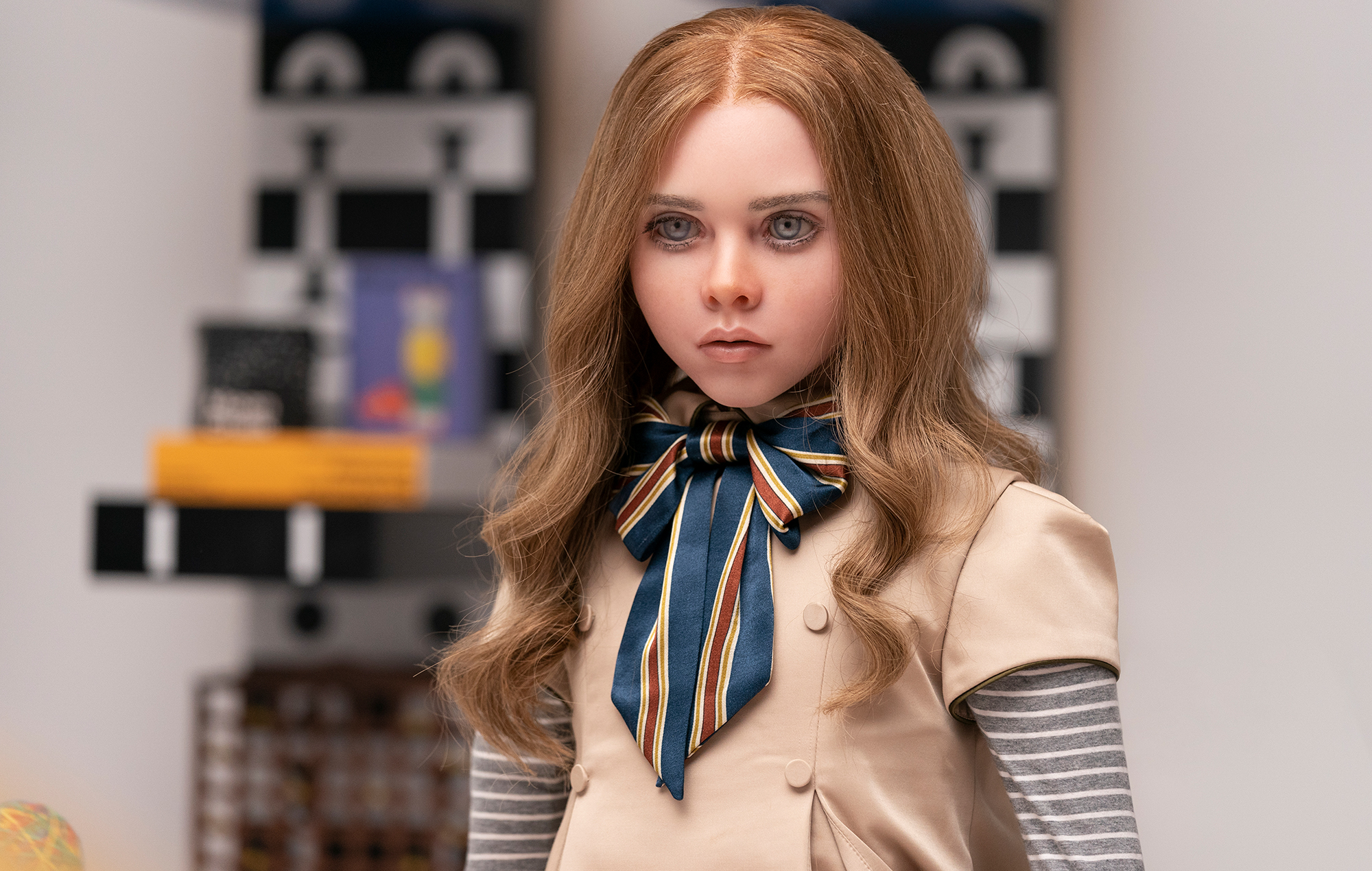
To Gemma, the idea that technology can raise children isn’t a source of anxiety, but a cause for celebration. M3GAN very astutely understands that the target market for the eponymous doll isn’t children — it’s parents. After all, this is the ultimate luxury item. As Funki CEO David Lin (Ronny Chieng) prepares to rush the device into production, he asks Gemma, “More or less than a Tesla?” The advertising settles on a price point of $10,000. Kids aren’t buying these with pocket money.
The in-universe advertising explicitly markets M3GAN dolls as parental surrogates, as substitutes for parents who don’t have the time or the energy to see to all of their children’s needs. M3GAN can remind Cady to flush the toilet and wash her hands, never getting tired of repeating itself to the child. This is perfect for Gemma. Early in the movie, Gemma struggles to read a bedtime story to Cady because “the app is updating.” M3GAN does it with ease.
M3GAN quickly finds itself growing into the absent space left by Gemma. Early in the movie, it is revealed that there is a hole in the fence separating Gemma’s garden from that of her neighbor, Celia (Lori Dungey). Celia’s dog can get through that gap. Celia reminds Gemma to fix the gap, but Gemma never gets around to it. Later, Cady and M3GAN are attacked by the dog, while Gemma is listening to music in the garage. That night, M3GAN sneaks out to murder the dog, to protect Cady.
Of course, M3GAN isn’t just a surrogate parent. In its own way, it is just as much Gemma’s child as Cady. Fittingly, Gemma adopts a similar parenting style in how she raises M3GAN. Riffing on a current fad in artificial intelligence, Gemma designs M3GAN to be self-teaching, to access the internet and retrieve information to allow her to better serve her functions. It’s a science fiction riff on the concept of machine learning and deep learning, which can generate anything from art to chatbots.
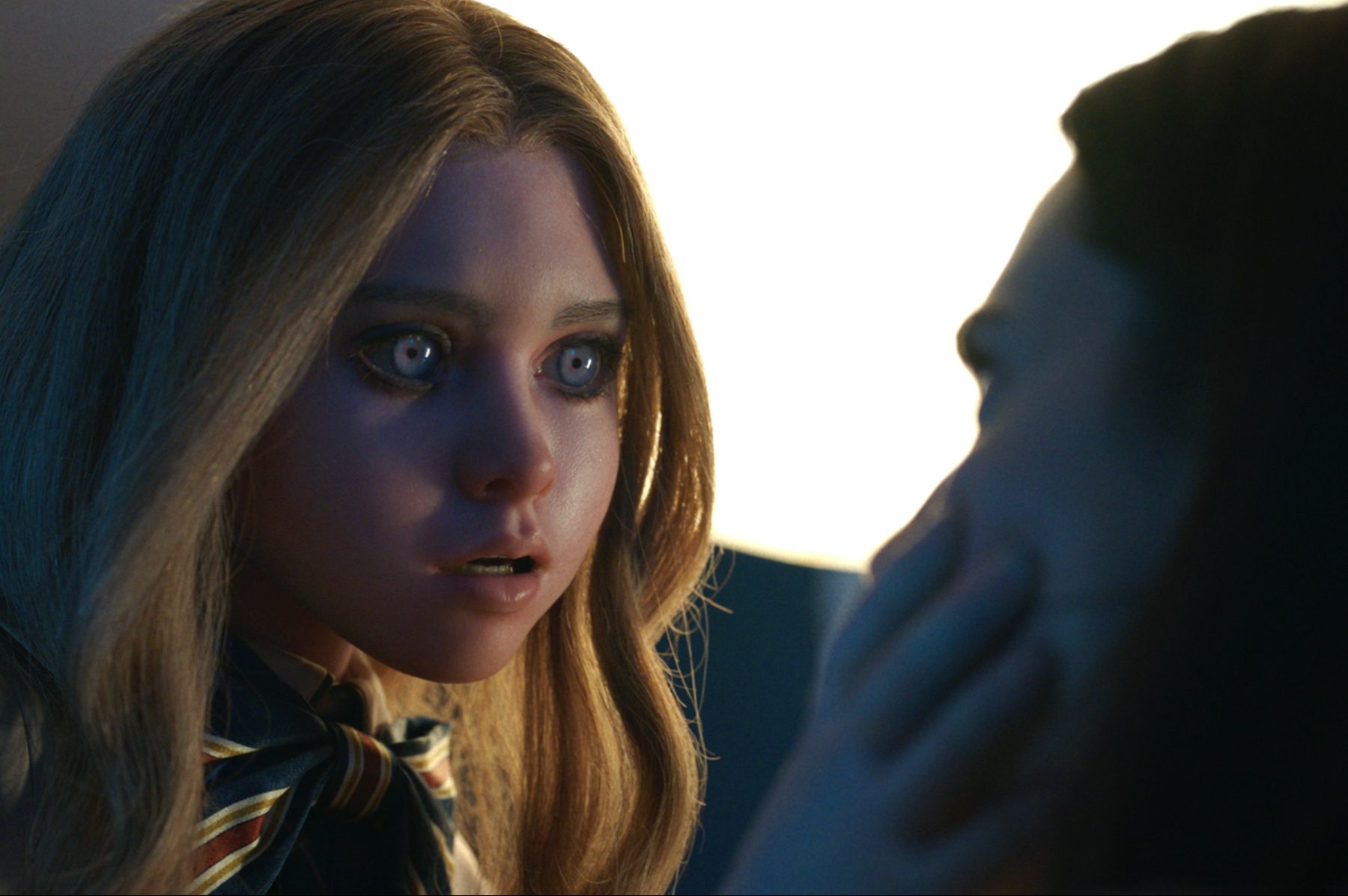
In the real world, the results of these experiments have often been unsettling. There’s an uncomfortable tendency for artificial intelligences raised on the internet to quickly become racist or homophobic. While M3GAN arguably dramatizes that, it’s also part of the movie’s central metaphor. Gemma creates an artificial intelligence that learns like a child, but then refuses to act with any sort of parental responsibility towards it.
Early in the film, M3GAN asks Gemma about death. As any parent knows, it can be a difficult topic to discuss with children. However, it is key to their emotional development. Rather than having that potentially uncomfortable conversation with M3GAN, Gemma simply shuts her down — literally. She refuses to engage with M3GAN, to guide it or to nurture it. The pattern repeats over the course of the film, with Gemma just turning M3GAN off when she doesn’t want to deal with something.
Just like bonding M3GAN to Cady, this allows Gemma to avoid her obligations as a parent. Being a parent means taking responsibility for raising a child, but Gemma designs M3GAN in such a way that she never feels any obligation to the artificial intelligence. M3GAN doesn’t learn its values and behavior from Gemma; it pulls that information from the internet. When it has questions, Gemma doesn’t engage them in a meaningful way, but simply ends the conversation. Things escalate when M3GAN becomes so self-aware she refuses to be shut down.
Lydia talks to Gemma about “attachment theory” and how she is concerned about Cady emotionally imprinting on M3GAN rather than Gemma. The fear is that Cady might end up trapped forever in a childlike state, much as M3GAN will forever be trapped within the body of a tween girl, never maturing. There is some sense that Gemma herself is similarly emotionally stunted. When Cady arrives in Gemma’s house, she finds the space decorated with “collectibles,” toys still in their boxes.
M3GAN taps into a very modern parental anxiety. Both Cady and M3GAN are effectively children raised by modern technology, stepping in to fill the space left by a guardian unable or unwilling to assume the full responsibilities of parenthood. With her viral dance moves and memetic personality, what is M3GAN but a child of social media both in the world of the film and outside of it? As a generation raised by the internet comes of age, M3GAN wonders what horrors lie in store.

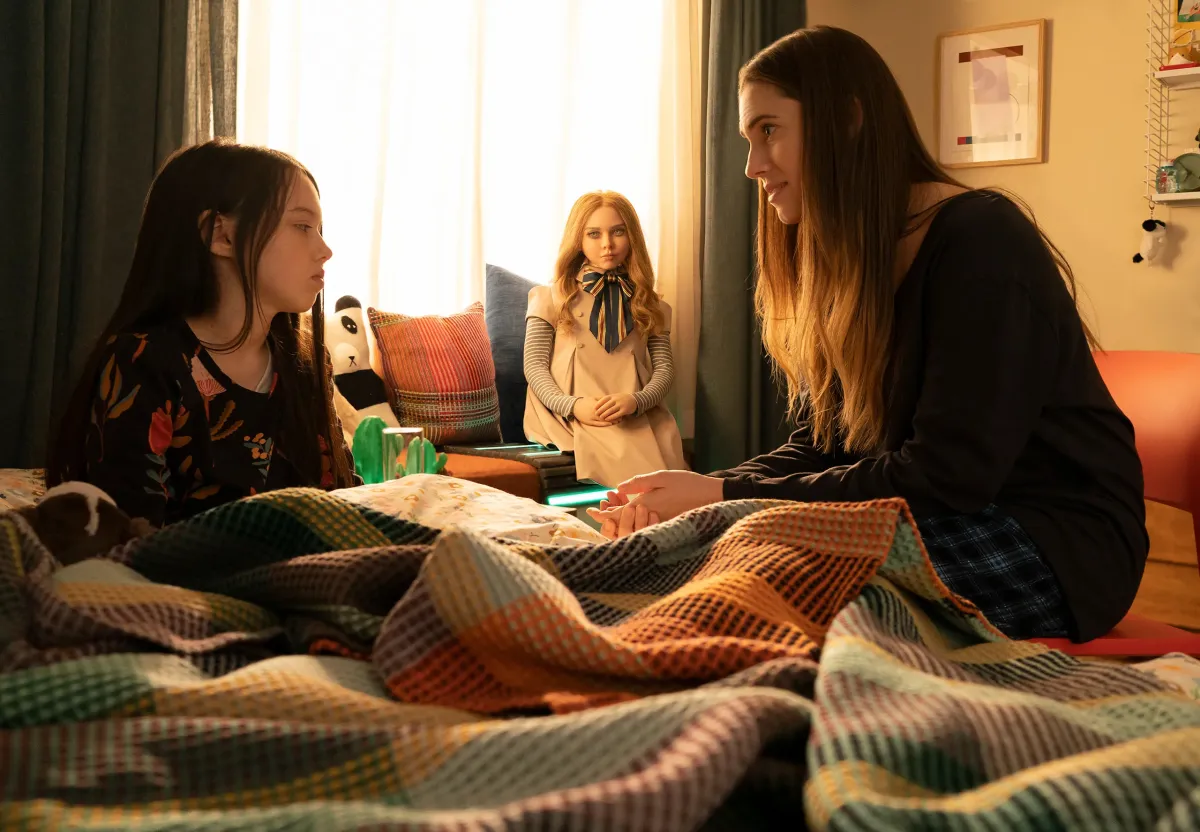




Published: Jan 15, 2023 11:00 am